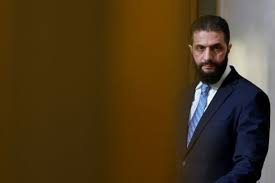Syria’s interim president, Ahmed al-Sharaa, has opted for a direct confrontation with the Druze community in Jabal al-Arab. While his decision undoubtedly involved careful calculation and specific objectives, one must ask: how sound were those calculations?
A tragedy is currently unfolding in Suweida, casting a long shadow over Syria’s future. The regime’s decision to launch a military campaign against this Druze stronghold was not merely a tactical misstep—it was a strategic blunder that has deepened national division and invited perilous foreign intervention.
The regime and its media sought to justify the campaign as an effort to restore “state prestige” and enforce the rule of law. Yet the outcome has been quite the opposite: destabilisation, a collapse of trust from a key societal group, and the transformation of a relatively stable region into a volatile front in an increasingly fragmented Syria.
Between Baku and Suweida
In July 2025, Sharaa travelled to Baku, Azerbaijan, to attend a high-level meeting with President Ilham Aliyev. However, the most consequential discussions reportedly occurred behind closed doors. Leaks suggest that direct talks between Syrian and Israeli representatives may have taken place, with security arrangements in southern Syria and the Kurdish northeast high on the agenda.
Only days later, Sharaa authorised a military operation in Suweida—a province that had largely remained beyond the control of Damascus for years. This escalation unleashed a wave of violence and triggered Israeli airstrikes on Damascus and its environs, ostensibly to protect the Druze. What began as a bid to assert state control quickly spiralled into a regional crisis.
Was this a misreading of Israel’s position, or was Sharaa deliberately manoeuvred into this path?
Diplomatic sources suggest the decision was rooted in a flawed interpretation of American and Israeli messaging—particularly comments by U.S. envoy Thomas Barrack, who reiterated Washington’s support for a “unified Syria without autonomous regions.” Sharaa’s inner circle believed this signalled a green light to reassert control over the south, anticipating that Israel would tolerate a “symbolic” state presence near its borders.
But Israel’s response was swift and unambiguous. Tel Aviv launched air raids on Syrian tanks and security positions, citing the protection of the Druze and a desire to prevent military entrenchment in the south. The United States, meanwhile, brokered a ceasefire but distanced itself from the Israeli strikes, calling the events a “misunderstanding.”
Beyond the Strikes: Israel Redrawing Post-Assad Boundaries?
Israel’s airstrikes appeared less reactive than strategic, pointing to a broader plan to establish a demilitarised zone in southern Syria. According to Israeli sources, Tel Aviv does not object to the presence of police or internal security forces in Suweida, but it firmly opposes any return of military units under the Ministry of Defence. This indicates that Israel’s objection is not to the return of state authority per se, but to its return in an armed, independent form.
On the ground, alarming reports emerged of abuses by Syrian forces—from summary executions to acts of public humiliation such as forcibly shaving men’s moustaches, a potent cultural insult in the mountain’s traditions. These violations not only provoked Israeli intervention but also alarmed Syria’s other minority communities, reinforcing fears of an authoritarian project cloaked in Islamist ideology.
Washington: Mixed Signals and Strategic Ambiguity
While the United States pressed Israel to halt its airstrikes, it remained conspicuously silent during the early stages of Damascus’s campaign. Its facilitation of the Baku meetings and calls to end federalism projects underscore a contradictory posture: advocating Syria’s territorial unity while tacitly permitting allies to reshape its internal dynamics.
This ambiguity left Damascus confused and exposed to geopolitical miscalculations. The campaign in Suweida, intended as a show of sovereignty, has instead become a costly political and military debacle—deepening sectarian rifts, undermining the regime’s legitimacy, and giving Israel a new foothold in post-Assad Syria.
The Mountain Remembers: Miscalculations Have a Price
Historically, Jabal al-Druze has never been an easy conquest. From Ibrahim Pasha to Adib Shishakli, and through the French Mandate, attempts to subdue the mountain have invariably backfired. The Great Syrian Revolt originated here. Assimilationist projects have consistently failed here. The Druze memory is etched with stories of resistance, and it has long warned that repression only breeds resolve.
The Druze are not aggressors; they are defenders of their existence. Over decades, Suweida has proven it will not compromise its dignity or identity. Their resistance to the latest campaign is merely the continuation of a legacy of defence—not rebellion, but self-preservation; not chaos, but clarity.
Israel and the Druze: Guardians or Opportunists?
Israel has framed its strikes as a protective gesture towards the Druze, but the reality is more nuanced. While Israeli Druze are full citizens with military roles and civil rights, Syrian Druze have never sought Israeli intervention, nor have they acted as its agents. Individual appeals for protection or affiliation do not reflect a collective position, but rather the echo of legitimate existential fears.
Israel’s primary interest lies in preventing Islamist forces from consolidating near its borders, and secondarily in maintaining a buffer zone in the south. To cast this as Druze coordination with Israel is dangerously reductive. It not only distorts the truth but also endangers a minority community by misrepresenting its intentions and exposing it to regional retaliation.
A Final Appeal to Reason
In a time of political confusion and military excess, reason remains Syria’s last hope. If the central government seeks legitimacy, it must move beyond coercion and towards genuine dialogue with all segments of society—especially the Druze. No nation can be built on humiliation; no stability can be secured by force.
From Ibrahim Pasha to Shishakli and Bashar al-Assad, every leader who misread the mountain has paid dearly. Were I in Sharaa’s position, I would not have chosen confrontation. I would have extended a hand to the Druze’s enduring legacy, not to their throats.


